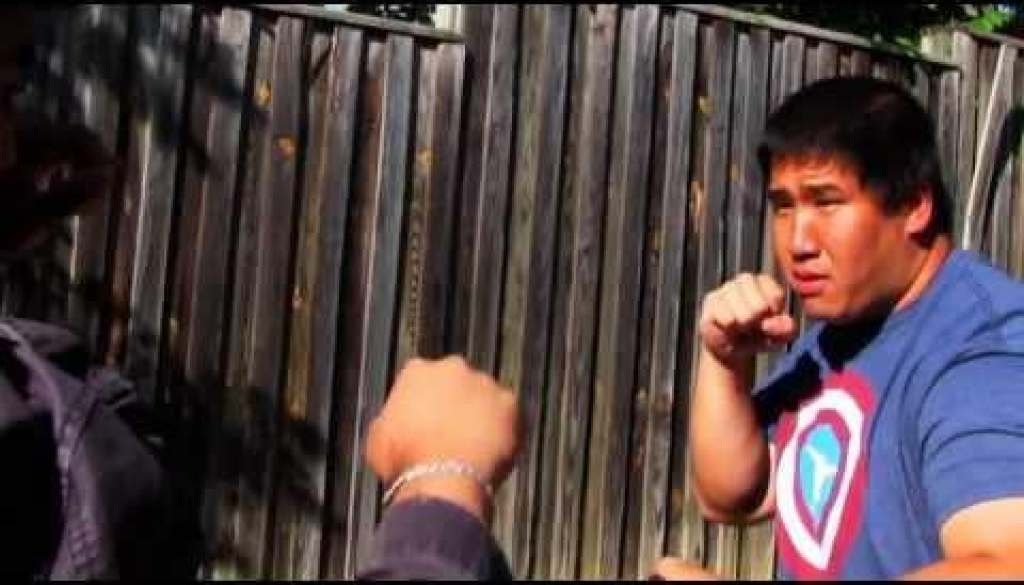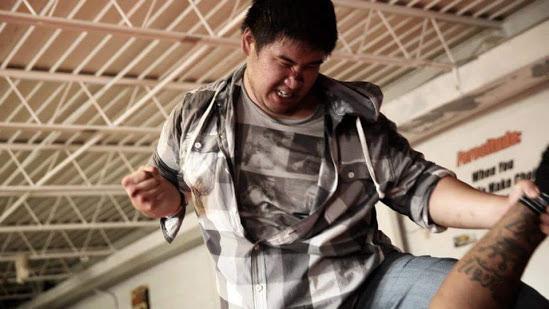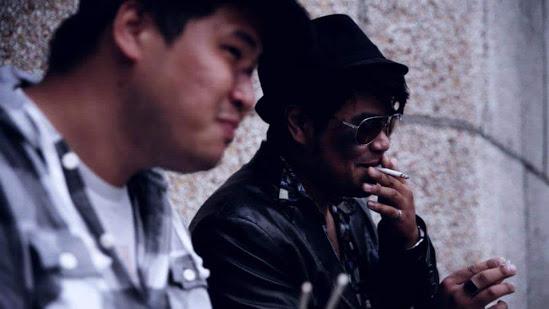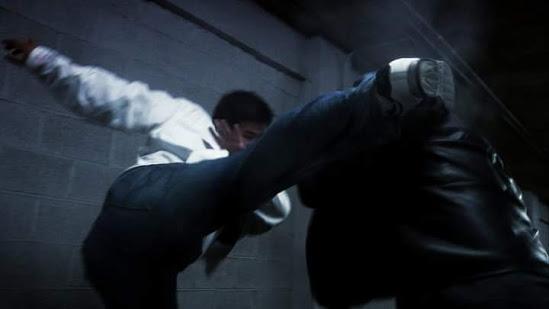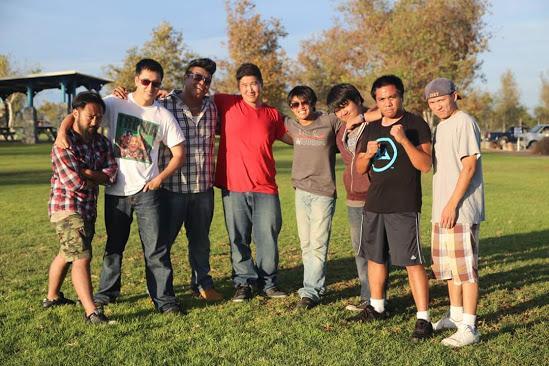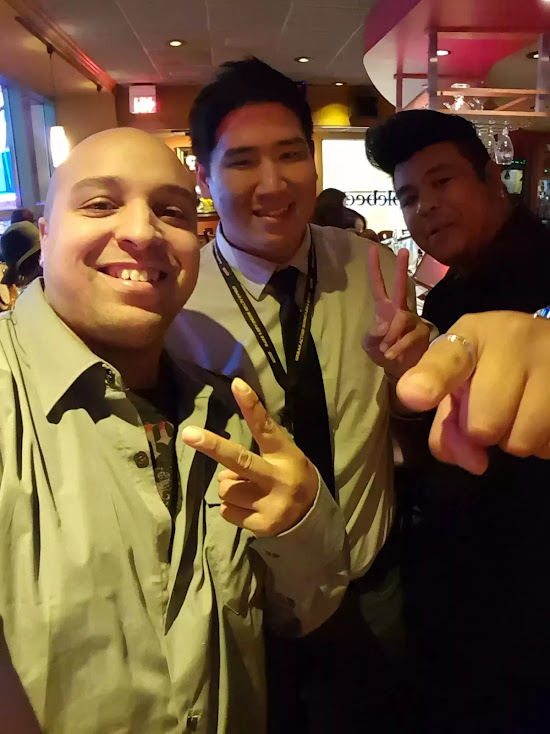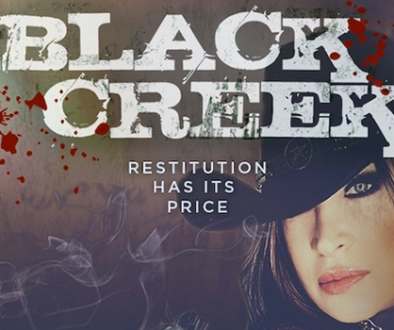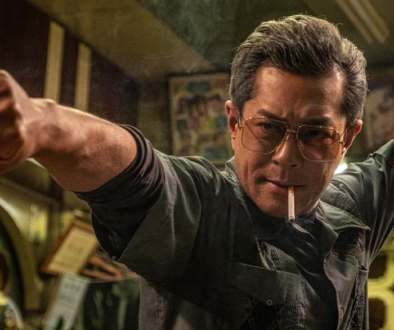VOLTRON FILM SCHOOL – PART II: An Interview With Actor And Filmmaker Edmond Shum
If you’re reading this, hopefully you’ve been keeping up in the wake of the latest milestone successes with the folks over at Rising Tiger Films. Last week’s interview with founder, actor and filmmaker Leroy Nguyen presented a candid tale of effort and triumph over tribulation for their feature debut, Black Scar Blues, which is currently running its first trailer.
As such, its been nearly two years since this fine indie film group landed on my radar and almost a year since I’ve met them in person. Hopefully it won’t be the last time as fun as it has been while covering these people and I look forward to even more of their endeavors following Black Scar Blues, for which I cannot wait to share my review.
For now, however, I leave you with the second of my two-part interview with the two leading artists behind Rising Tiger Films, and their staunch history of contributing to the collective of online creatives for more than ten years. It’s a community that actor and filmmaker Edmond Shum is undoubtedly proud of after simply taking a chance after school once upon a time to do something fun, and I, for one, am not disappointed.
Here, he discusses the film, his attachment to Rising Tiger Films and their current outlook following their tumultuous journey from the project’s scattered inception to its completion. Enjoy the interview with Shum and be sure to click here for Nguyen’s as well in case this is the first you’re hearing of it.
Edmond Shum: My year so far has been good, and thank you for reaching out! I’m blessed to have worked on a few different projects here and there keeping the dream alive.
ES: This film had its ups and downs for me. Early on it was possibly my greatest ambition and then became my worse nightmare to a project I’m proud to say I have a stake in.
Looking back reminds me of a “time”. This project had a spark and I think it was pretty clear to Leroy and I early on that this wasn’t going to be a regular project. We had so many late nights sweating in a hot garage taking bumps and bruises, and on top of that, being covered in homemade blood made from syrup. We really pushed ourselves because we put our faith into it, and I can’t tell you how many times we talked about how this film was “the one”. The project had times where the momentum seemed unstoppable and then times where it felt like moving through quick sand, but we made it through and I’m grateful.
The credit is really due to Leroy as pushed this film to be done during difficult times and persevered. The word “journey” is an understatement, as much as it was a seven-year trek of life’s bullshit and trying to stay on the path to our dreams.
ES: We met back in late 2005 or around early 2006 when we were just a couple of punk kids filming in public places without giving any fucks whatsoever. It all started after class one day when the after school nerds would crowd around the computer labs watching films that Leroy would upload to the servers. I had seen a couple of shorts, taken note of the current talent and thought I had something to offer seeing as how I always had a thing for martial arts and I felt I could have some fun too. And so one day after class, we just shot a test fight and the rest was history.
ES: I do train, not everyday but on and off. I have always been interested in martial arts and had a passion for it. I did not have much of an ability for martial arts at first but I learned through choreography, self training and a few classes.
I feel like this is a common question to ask and I could give a list of martial arts that I’ve dabbled in but I’ve never really claimed one. I think it’s important to train for screen fighting, it’s a skill most “real” martial artists lack. When fighting for film, it’s always important that the movements are communicated with intention, may it be clear or vague.
ES: Mine is a supporting role to Leroy in the film. He’s a streetwise kind of guy who has deep connections in the underworld. He is a criminal through and through, but believes in a code of loyalty, respect and doing as you are told as a means of moving up in this world.
In terms of production role, its changed hands a few times; I’ve done some writing, editing, and shooting, but this is how it is when you are working indie. Sometimes you have to pick up where the slack is even if you are just an actor.
ES: I think the shorts will be an interesting thing to watch afterwards to give people an idea of where this film came from, although ultimately this is the final product and is the showcase. Compared to other iterations, this feature film allows us to put it on the market. It is our first to be distributed and I’m happy to see it make it this far.
Like we talked about earlier, this process was a journey and the shorts were our stepping stones to make the feature. I think by watching the shorts you can see how the film transformed over time, for other filmmakers this could be nice to see just so people don’t think we never make changes or run into issues along the way.
ES: I think that it’s more so having a second set of eyes to help fill in some areas. Most of the time I will be shooting Leroy if I’m not in the scene, and that really allows me to manipulate how I want to see it on film. 99% of the time our minds are on the same track if not in sync, I think that’s why we work so well together. If Leroy is focused on moving from point A to B, it means that I have a chance to think about the details, and vice versa. I have life experience and a lot of inspiration from films that I draw from and I think Leroy does the same. We always try walking a fine line between drama realism, and we’ve been on the same page for years.
ES: Some of my inspirations would be Heat, Goodfellas, The Departed, A Bittersweet LIfe, Once Upon A Time In High School, Gangster High, Friend, Pulp Fiction, Reservoir Dogs, SPL, Flashpoint, Wheels On Meals, Police Story. I could go on but that’s pretty much the big picture.
I would say that in terms of our choreography style, Jackie Chan and Donnie Yen really inspired us quite a bit, initially. Later on watching Korean action movies with guys like Jung Doo-hong in City Of Violence and films like A Bittersweet Life, we grew into a more diverse style of choreography. It went from old school Hong Kong style to a more rough and brawling Korean style of action, and I would say our ultimate evolution was our fight in Black Scar Blues.
Now, in terms of filmmaking and drama which is a whole different ball park I use guys like Martin Scorsese, Micheal Mann, Brian De Palma, etc. These guys have molded my perception of what a film is. There are “movies” and there are “films”, and I think we always wanted to be on the “film” side of things. To me bridging the gap between Hollywood drama and Asian style fight choreography was always the goal.
ES: We never do rehearsals for fight scenes. Not only do we not have the luxury to do so but it works against us most of the time. The bulk of the fight was finished within 4 to 5 weeks from when we started, and I’d say we had about 90% of the fight completed in the first year of shooting. We only added a few shots here and there after the fact when we decided to pick it up and add to it. In the first year of shooting we spent most of our weekend nights in the Roslyn garage in VA. I would always come up with the homemade blood and do the make up between sets. Our shoots would go for 4 to 5 hours most of the time, which meant that we’d be leaving just around midnight or later. It was fun, dirty, and gave us some of the best choreography we’d ever have.
ES: Ah yes, how could I ever forget that time?! [laughs] It was a pretty big nuance, we had so many cops come to us it felt like we were1 terrorist. They said they blocked off boths sides of the streets and flew over to us, putting their lives and others in danger. It was pretty ridiculous. I remember some people laughing and looking at us while we were shooting, but we thought nothing of it ’til the boys in blue showed up. We never had an issue filming there either. We know the security manager of the building and have a decent relationship with him.
We always run into the problem of locations – especially when we need flexibility I think the garage is our staple. It’s always reliable and well lit, and creates an atmosphere that we like. It’s not always that it’s convenient to shoot there but it really has a vibe to it. We always have places we walk by that would be an amazing spot to film, but until we have a budget that would give us that resource, we have to do what we can.
ES: I think we left it all out. In fact we came back years later just to fatten it up some more.
There are definitely some ideas I’d like to play with. I’ve never used weapons before but if given the right circumstances I would love to use weapons in our choreography. It takes skill and time training to really use weapons on top of doing it for film.
ES: We have a project that is currently in the works and it’s still in early stages. We plan to enter it into this year’s Urban Action Showcase and if everything goes well you will see a new film from us.
ES: I do miss the guys. Before going to L.A., I had never met the other stunt groups and I had maybe only shared few short words with Jay over Facebook.
Working with each group was really something special, I think the moment we all got together we connected like Voltron. All of our experiences as early filmmakers under our respective banners were the same and I think that makes us more like-minded. It was a lot fun and I don’t think I’ve ever worked with other people so well in such a short amount of time. We are most definitely going to collaborate again, and I think we even talked about that the day after we left L.A.. I can’t say exactly when but It will happen again for sure.
ES: I’m not entirely sure how to answer this question, but I guess I can say they can expect a dark, gritty independent film that took years of hard work, made by a small group with a lot of passion for filmmaking. I really don’t like to talk it up or be boastful as I see the film as something I think is able, generally, to speak for itself. I only hope that when people see it, they will recognize that we are different and we can really tell a story.
ES: I would say itis really important to have the right crew early on. You could have great ideas, but without reliable people its just a pipe dream. Not only can you make a film with a crew you can gain experience which is the best thing that can happen.
It takes lots of trial and error and continually sharpening filmmaking instincts to know what to do next, and you can’t gain those instincts without putting yourself out there and possibly failing. It’s so important to just keep going and making more films; I wish I could say that my ability on set was overnight, but it was steadily building over the past ten years. Just get out there and start filming. Don’t wait.
ES: No, thank you for taking the time to interview Leroy and I. It’s a real honor to have someone like yourself to put us on. Let’s stay in touch. See you in November, Lee!
Native New Yorker. Been writing for a long time now, and I enjoy what I do. Be nice to me!

